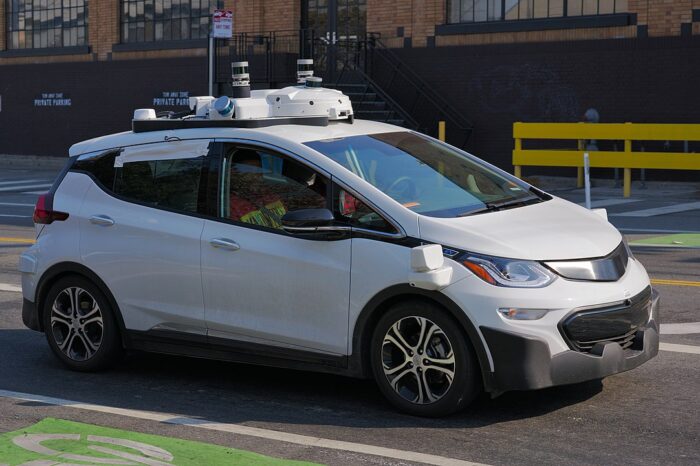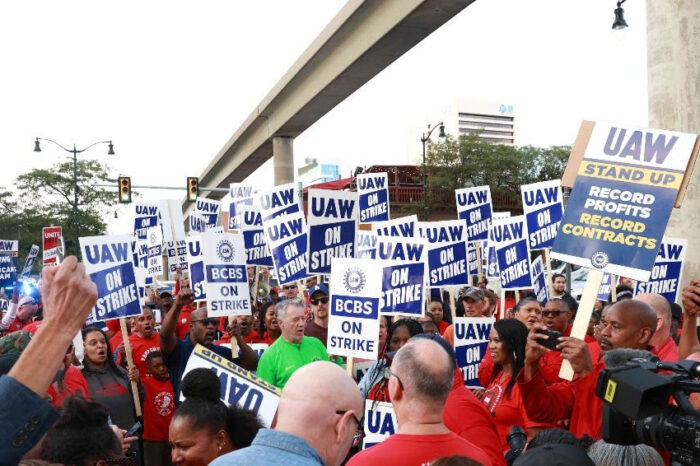If you’re finally ready to buy an EV, you should definitely make sure if the ride you have in mind qualifies for the new $7,500 credit in the Inflation Reduction Act –– many don’t. Speaking of inflation reduction, one of the best strategies may be to give people alternatives to cars, although public transit probably doesn’t feel like such an attractive alternative to the millions of Britons affected by ongoing rail strikes.
This week also brings some ideas about preventing climate change. One obvious one is for LA Metro to stop expanding highways. Less obvious ones include burying carbon under the Gulf Coast and bringing the Wooly Mammoth back to life.
Also: an Indian startup can charge electric delivery vehicles in 15 minutes, Rivian ditches its cheapest truck, the U.S. plans to double the number of electric buses, and, last but not least, Tesla tussles with state and federal regulators over its autonomous driving technology.
![]()
Here are the EVs that qualify for the new credit: The Biden administration publishes a list of 19 vehicles that likely qualify for the new EV credit approved in the Inflation Reduction Act. Ford, BMW, Lucid, Lincoln, Chrysler, Jeep, Rivian, Nissan, Volvo and Lucid all have 2022 models that qualify because they are assembled in North America. However there are only several 2023 models that qualify due to new battery sourcing requirements that kick in next year: the BMW 330e, the Mercedes EQS SUV and the Nissan Leaf.
Strikes rattle UK rail service: Tens of thousands of rail workers took part in strikes last week that severely disrupted rail service throughout the UK. On Saturday only 20% of scheduled trains were running. Unions representing rail employees are demanding higher pay from rail companies. And on Sunday workers at the country’s largest shipping container port announced plans for a one-week strike over similar grievances. As if the supply chain wasn’t in enough trouble…
U.S. to double electric buses: The Department of Transportation announces $2.2 billion of grants to help transit agencies buy electric buses or put in place charging facilities. The money will help purchase 1,800 new vehicles, roughly doubling the total number of electric buses operating in the U.S. And yet, even after this historic investment EVs will only account for about 4% of America’s 60,000 buses.
LA Metro’s self-own: Los Angeles’ transit agency concludes in a new report that all of its efforts to mitigate climate change do not make up for the harm done by its freeway expansions.
Rivian ditches cheapest option: The EV maker discontinues its most affordable trim level of its electric truck and SUV, citing low sales. That means that those who ordered the Explore trim will have to pony up an additional $5,500 for the Adventure trim, bringing the price tag for the entry-level Rivian to a cool $73,000.
Tesla fends off federal, state regulators: The National Traffic Highway Safety Administration wants more answers from Tesla about the cabin camera the company says can detect whether drivers are keeping their eyes on the road. Among other things, the agency wants “evidence that justifies the period of time that the driver is permitted to have their hands off the steering wheel before receiving a warning.” Separately, Tesla has requested a hearing in California to respond to a complaint from state regulators that it has deceived consumers in its advertising of the Full Self Driving system.
HyperTrack raises $25M: HyperTrack, a San Francisco startup that provides freight order planning software, raises $25 million in a Series A round.
Exponential charge: Bangalore-based startup Exponent Energy says its technology can fully charge commercial vehicles in 15 minutes. However, the 15-minute charge is only possible if the vehicle is powered by Exponent’s own battery pack and being charged at an Exponent charger. The company, which recently raised $13 million in a Series A, envisions striking up partnerships with fleet operators to use their batteries and charging network.
SAIC Mobility’s big raise: SAIC Mobility, a subsidiary of Chinese state-owned automaker SAIC, raises $148 million at a valuation of $1 billion. The company seeks to launch a commercial robo-taxi service.
![]()
Less driving, less inflation: Yonah Freemark of the Urban Institute argues that one of the best ways to shield Americans from inflation –– now and in the future –– is to reduce car dependence. The past two years have underscored how car-centric planning makes people vulnerable to the vicissitudes of the global market: gas prices, semiconductor shortages etc. Sounds reasonable to us.
What does effective bike advocacy look like? CalBike talks to a number of bike advocates around the Golden State to examine recent successes in pushing for more bike-friendly communities. Among other things, emphasizing child safety, allying with other safety advocates and putting faces to the names of car crash victims appear to have been effective strategies.
The big business of carbon storage: Wired takes a fascinating look at one man’s mission to turn rock beneath the Gulf Coast into America’s carbon dump.
Can the Wooly Mammoth save us? In the New Yorker, Jill Lepore looks at a venture-backed effort to “de-extinct” the Wooly Mammoth through some innovative genetic tactics. The company, Colossal, argues that repopulating the permafrost with the ancient beasts could turn the tundra into dry grasslands that capture carbon. What could possibly go wrong? Suffice it to say, Lepore is skeptical that this is money and time well-spent.
Enjoy the Week in Review? Get it delivered directly to your inbox by signing up for the CoMotion>>NEWS newsletter.






